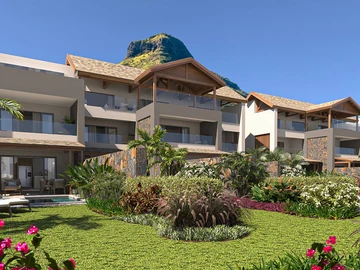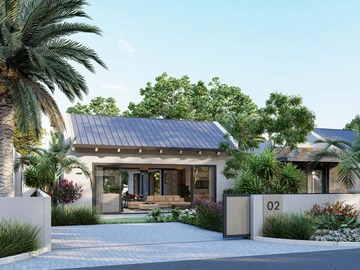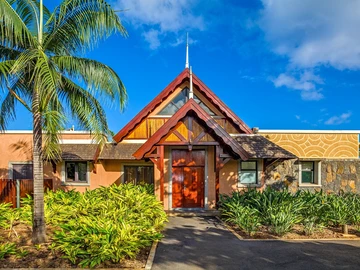How does Mauritius property taxes compare
When choosing an investment destination, it's important to know the tax implications on your investment. We break down a comparative analysis of how Mauritius compares to other countries for real estate investment purposes.
Mauritius
For property transactions in Mauritius, whether for purchase or sale, there is a registration fee of 5% payable by the buyer and 5% by the vendor. There are no capital gains taxes or estate duties. And rental income is taxed at 15%, which is harmonized to the general taxation rate in Mauritius.
France
French legislation enforces 3 tax aspects, (1) ‘Residence Tax’ (taxe d’habitation ) which is imposed on the occupants, (2) a general ‘Property Tax’ (taxe foncière) which is payable by the owner whether or not they actually occupy the property, and (3) an ‘Annual Wealth Tax’ (Impôt sur la Fortune Immobilière - IFI) which only applies to households that have total taxable property assets above €1.3 million. Capital gains tax has a standard rate of 19% but includes a sliding scale increasing with the value of the property. Rental income is taxable as ordinary income and based on a sliding scale and should be disclosed on an annual basis and is subject to a 17.2% social contribution. Interesting to note is that if the rental is rented furnished it is classified as commercial property and the individual benefits from a 50% allowance on the income, but cannot deduct the actual expenses related to the rented property. However if it is rented unfurnished there is no allowance benefit, but the owner can deduct all the expenses related to the property and deduction of the depreciation of the rented property.
United Kingdom
UK transfer tax is classified as ‘Stamp Duty Land Tax’ and is applicable on acquisition. First-time buyers are eligible for relief, with no tax payable on the first £300,000. Capital gains tax ranges from 18%-28%. There is also a Council Tax which is a local tax collected by local authorities and is based on the property value. Rentals are taxed as normal income and on a progressive scale from 20% to 45%, although personal allowances are deductible.
South Africa
For property transactions in South Africa, transfer tax is based on a sliding scale up to 13%, however properties under R1.1 million in value are exempt from transfer tax. Capital gains tax is considered part of income tax and starts from 18% for individuals. Estate duty is taxed at 20% for properties over R3.5 million. Rental tax is classified as personal income tax but allows for deductions, and is added to the individual annual taxable income which ranges from 18% to 45% depending on the tax bracket.
Sources: RSM Global, Live in Mauritius, gov.uk, impouts.gov.fr
 Continue with Facebook
Continue with Facebook
 Continue with Email
Continue with Email















